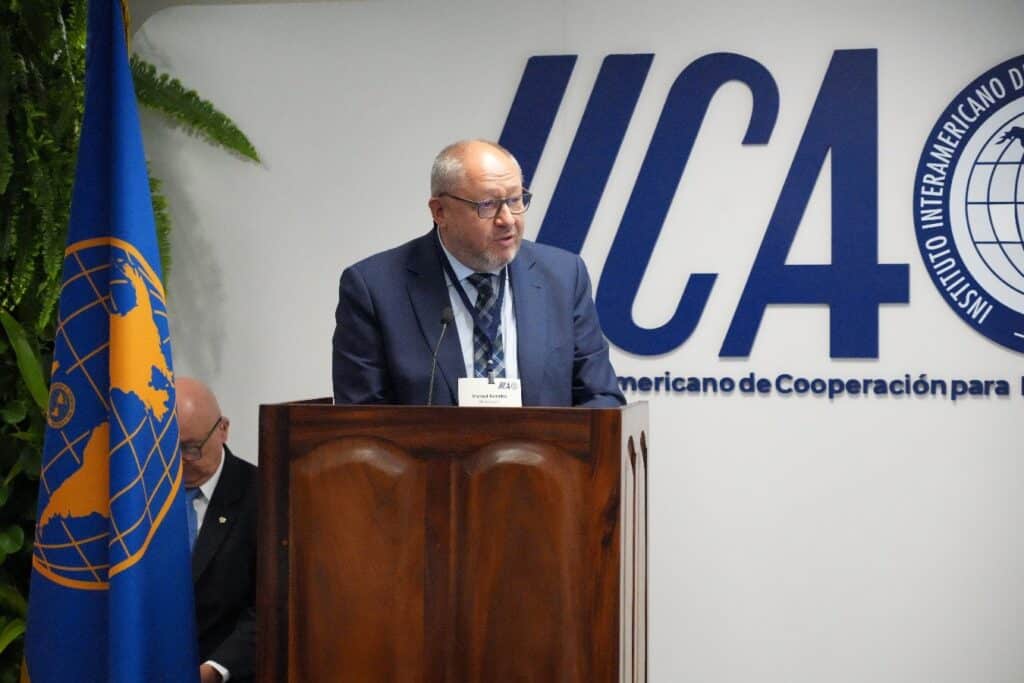
San José, 21 March 2025 (IICA) – The active participation of young people in agriculture is essential to driving innovation in the sector, and universities play an irreplaceable role in training them and fostering their leadership in rural areas.
This was stated by Manuel Torralbo, President of the Network for Innovation Management in the Agri-Food Sector (INNOVAGRO) and Rector of the University of Córdoba (UCO), Spain, during the event “Sowing Talent: Boosting Science and Innovation in Europe and the Americas,” organized by the Inter-American Institute for Cooperation on Agriculture (IICA) at its headquarters.
The event brought together more than 50 representatives from academia, research and innovation centers, technical cooperation organizations, and other stakeholders from Brazil, Costa Rica, Chile, El Salvador, Spain, the United States, Guatemala, Honduras, Mexico, Panama, Peru, and the Dominican Republic, among others.
Torralbo provided details on the University of Córdoba’s work in the agricultural sector and highlighted its cooperation with IICA, particularly the organization’s ability to reach rural areas.
Among other joint initiatives, the University of Córdoba and IICA have established a strategic alliance that has enabled Latin American and Caribbean scholars to access the master’s program in Digital Transformation of the Agri-Food and Forestry Sector (Digital Agri) at the Spanish university. This program aims to strengthen the necessary process of innovation and digitalization in the agri-food sector by fostering critical and specialized thinking to address the challenges of a competitive, efficient, and sustainable agri-food system.
This master’s program also responds to the public and private sectors’ need for professionals with specialized skills in innovation, digitalization, and technology oversight, as well as in areas such as the Internet of Things, data analysis and satellite imagery, sensors applied to food, soil, water, and plants, big data, and blockchain.
Preparing a new generation
The debate featured the participation of experts and academics in Costa Rica, who underscored the need to modernize agriculture to ensure food security and enhance sustainability and resilience, while emphasizing the central role of science, technology, innovation, and education.
In this context, Torralbo stressed that training young people in higher education institutions is a fundamental pillar for agricultural modernization.
“Leadership training and the promotion of innovation are essential components of education programs aimed at preparing a new generation of leaders capable of driving a more sustainable and resilient future,” he emphasized.
Along these lines, he highlighted the importance of collaboration among key actors in the agri-food sector to promote the exchange of ideas and experiences, as well as the development of educational programs in partnership with universities and key institutions. These initiatives provide students with the necessary tools to address the challenges of food security, sustainability, and climate resilience.
Regarding future challenges, Torralbo pointed to the importance of using artificial intelligence tools to enhance agricultural productivity and ensure global food security.
The University of Córdoba, in collaboration with Spain’s Ministry of Agriculture, Fisheries, and Food Supply, has established an academic chair in artificial intelligence applied to agriculture—an important step toward the responsible use of these technologies in the sector.











